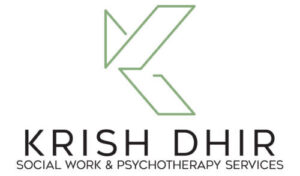Cognitive Behavioral Therapy in Ontario

Cognitive Behavioral Therapy (CBT) is a widely recognized and effective form of psychotherapy that focuses on identifying and altering unhelpful thought patterns and behaviors that contribute to emotional distress and mental health issues. Rooted in the principle that thoughts, feelings, and behaviors are interconnected, CBT empowers individuals to challenge and change unhelpful beliefs, thereby improving their emotional well-being. This therapy is especially effective for conditions such as anxiety, depression, and stress-related disorders. CBT is more skilled-based and problem-solving oriented, offering practical strategies to manage current challenges. The goal of CBT is not only to alleviate symptoms but also to equip individuals with lifelong skills for healthier thinking and behavior patterns. This article aims to explore the principles, methods, and applications of Cognitive Behavioral Therapy in Ontario, offering insights into how it can be a transformative tool for mental health and well-being.
How Does Cognitive Behavioral Therapy in Ontario Help?
Cognitive Behavioral Therapy (CBT) plays a pivotal role in mental health treatment by teaching individuals how to identify and reframe unhelpful patterns or unhelpful thought patterns that adversely affect emotions and behavior. This approach is grounded in the understanding that our thoughts significantly influence our feelings and actions. For example, in treating anxiety, CBT helps individuals recognize anxious thoughts, challenge their validity, and replace them with more balanced, realistic thinking. This shift in perspective often leads to a reduction in anxiety symptoms. Similarly, for depression, CBT focuses on altering habitual unpleasant thoughts and beliefs, such as feelings of worthlessness or hopelessness, encouraging individuals to engage in activities that disrupt the cycle of depression. By addressing these thoughts, CBT aids in alleviating emotional distress and fosters more adaptive ways of coping with life’s challenges.
Moreover, CBT offers practical tools and strategies that are applicable in everyday life, making it a highly empowering form of therapy. Skills learned through CBT, such as problem-solving, assertiveness, and stress management, are not only useful in overcoming the specific issue at hand but also serve as long-term strategies for maintaining mental health. For instance, in stress management, CBT teaches techniques like relaxation, mindfulness, and time management, which are beneficial for managing stress in various life situations. Additionally, CBT is often a time-limited and goal-oriented therapy, making it an efficient and focused approach. Its structured nature enables individuals to see tangible progress, often in a relatively short period. This aspect of CBT not only helps in the immediate resolution of problems but also instills a sense of confidence and self-efficacy in individuals, empowering them to handle future challenges more effectively.
What to Expect From Cognitive Behavioral Therapy in Ontario
Embarking on Cognitive Behavioral Therapy (CBT) is a journey of self-discovery and transformation, guided by a structured and collaborative process. In the initial stages, you can expect to work closely with your therapist to clearly define your specific challenges and set realistic, achievable goals. This initial assessment is crucial as it lays the groundwork for your therapy. The therapist will inquire about your current problems, your history, and any relevant aspects of your life to gain a comprehensive understanding of your situation. From there, you’ll collaboratively develop a treatment plan tailored to your needs. CBT is a highly interactive form of therapy, so expect to play an active role in the sessions. Unlike more traditional, passive forms of therapy, CBT involves working on exercises during sessions, discussing your thoughts and beliefs, and receiving direct feedback from your therapist.
One of the unique aspects of CBT is the emphasis on ‘homework’ or exercises to be practiced outside of therapy sessions. These tasks are designed to apply the skills learned in therapy to real-life situations, making the treatment more effective and practical. You might be asked to keep a journal, practice relaxation techniques, or consciously engage in activities that challenge your existing thought patterns. Over time, these exercises help reinforce the cognitive and behavioral changes initiated in the therapy sessions. Furthermore, CBT is typically time-limited, with many treatments lasting between 5 to 20 sessions. This means you can expect a focused and goal-oriented approach, with clear objectives set for each session. As you progress, you will likely notice improvements in how you think, feel, and act, reflecting the fundamental principles of CBT at work. It’s important to remember that the pace of progress can vary from person to person, and your therapist will be there to guide and support you throughout the journey.
Benefits
The benefits of Cognitive Behavioral Therapy (CBT) are extensive and multifaceted, offering long-term improvements in mental health and overall quality of life. One of the primary advantages of CBT is its effectiveness in treating a range of mental health conditions, such as anxiety, depression, phobias, and stress-related disorders, often with very positive results. CBT’s practical approach equips individuals with concrete skills for managing challenging situations, enhancing resilience, and promoting healthier thought patterns. Moreover, the skills and techniques learned through CBT, like mindfulness, emotional regulation, and cognitive restructuring, are invaluable life tools that extend beyond the therapy sessions. These skills foster a heightened sense of self-awareness and empower individuals to take control of their mental health, leading to sustained well-being. Additionally, the structured, time-limited nature of CBT makes it a more cost-effective and accessible form of therapy. Its focus on problems and practical solutions, while its emphasis on teaching self-help strategies works towards longer-lasting benefits, and aims to reduce the likelihood of relapse.
Take the First Step
I have witnessed firsthand the transformative power this therapy holds. The journey through CBT is not just about overcoming current struggles; it’s about equipping you with the tools to navigate future challenges with greater ease and confidence. My role is to guide, support, and empower you to discover your own strength and resilience. Remember, the path to better mental health is a journey, not a race. Each step you take in understanding and redefining your thoughts and behaviors is a step towards a healthier, more fulfilling life. My hope is that through our sessions, you will not only find relief from your immediate concerns but also gain a deeper understanding of yourself and an enduring set of skills to manage life’s ups and downs. In CBT, we work together to build a stronger, more resilient you, ready to face the world with a new perspective and renewed confidence.
Take the first step towards a more empowered and positive you by contacting today!

